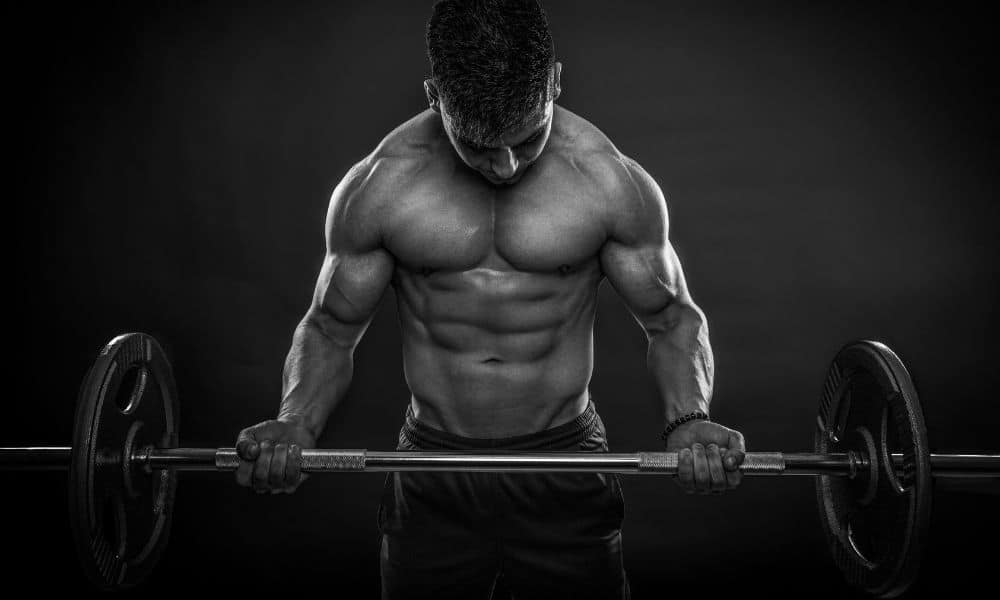Protein is vital in muscle building, not just for bodybuilders or athletes. Whether you’re trying to gain muscle mass, tone your physique, or recover faster from workouts, understanding how protein builds muscle is key to achieving your goals. This article will summarize five science-backed facts about protein and how it helps your body grow stronger.
What Role Does Protein Play in Muscle Growth?
Protein is often called the building block of muscles and for a good reason. Muscles comprise protein, and the body relies on a constant supply of amino acids (the building blocks of protein) to repair and grow muscle tissue. When you work out, especially during strength training or resistance exercises, your muscles experience tiny tears. Consuming enough protein ensures your body can repair these tears, leading to stronger, bigger muscles over time.
1. How Does Protein Support Muscle Repair and Recovery?
The muscle building process, known as muscle protein synthesis (MPS), is heavily influenced by the amount of protein you consume. After intense exercise, especially weightlifting, your muscle fibers sustain damage. Protein helps to repair these damaged fibers, making them stronger in the process. This repair mechanism is essential for recovery and overall muscle growth.
Studies show that consuming protein-rich meals within 30 minutes to two hours post-workout can significantly enhance muscle repair. During this time, your body is particularly efficient at utilizing amino acids for recovery. This is known as the “anabolic window.”
Tip: Aim to consume 20-40 grams of high-quality protein after a workout to maximize muscle recovery and growth.
2. How Much Protein Do You Need to Build Muscle?
To determine how much protein is needed, most experts recommend 1.6 to 2.2 grams of protein per kilogram of body weight per day for those aiming to build muscle. For example, if you weigh 70 kg (154 pounds), you should consume around 112-154 grams of protein daily. This range ensures you have enough amino acids for muscle protein synthesis while supporting other bodily functions.
Consuming adequate protein regularly, especially with resistance training, helps stimulate muscle growth. This is particularly true for people looking to increase lean body mass.
3. Which Types of Protein Are Best for Building Muscle?
Not all proteins are created equal when it comes to muscle building. The most effective proteins contain all nine essential amino acids, particularly leucine, which triggers muscle protein synthesis. These complete proteins are typically found in animal products like chicken, beef, eggs, and dairy.
However, plant-based protein sources can also support muscle growth when combined properly. For example, mixing different sources like rice and beans can create a complete protein profile. Here are some of the best sources of protein for muscle building:
- Whey protein: Fast-digesting and rich in leucine, perfect for post-workout recovery.
- Chicken and turkey: Lean proteins that provide a high concentration of essential amino acids.
- Eggs: A complete protein that supports both muscle growth and fat loss.
- Lentils and chickpeas: Ideal for plant-based eaters, these legumes provide good protein when combined with other plant foods.
External Link: Find out more about protein-rich foods that build muscle.
4. Can You Build Muscle Without a Protein Supplement?
Yes, you can build muscle without using protein supplements, but they can also help you meet your daily protein intake goals. Whole foods should always be the foundation of your diet, but supplements like whey or casein protein can make it easier to hit your protein targets, especially if you’re busy or struggle to consume enough through food alone.
Protein powders are a convenient option post-workout or as a quick snack between meals. They’re particularly useful for people with higher protein needs or those who are vegan or vegetarian, as plant-based diets can sometimes lack sufficient protein density.
However, if you prefer whole foods, you can still meet your protein needs by consuming lean meats, dairy, fish, eggs, and legumes. The key is consistency—eating enough high-quality protein throughout the day to support muscle repair and growth.
External Link: Learn more about whey protein benefits for muscle building.
5. How Does Protein Timing Affect Muscle Growth?
While total daily protein intake is crucial, the timing of protein consumption also matters. Distributing your protein intake evenly throughout the day ensures a steady supply of amino acids to your muscles, optimizing muscle protein synthesis.
For example, consuming 20-30 grams of protein every three to four hours can maximize muscle growth, compared to eating most of your protein in just one or two meals. Furthermore, consuming protein before bed can be especially beneficial. Casein protein, a slow-digesting protein found in dairy products like cottage cheese, provides a steady release of amino acids overnight, helping to repair and build muscle while you sleep.
Key Fact: Studies suggest consuming 30-40 grams of casein before bed can increase muscle protein synthesis and improve muscle recovery.
What’s the Best Protein Intake Strategy for Muscle Building?
To make the most of your muscle-building efforts, you should:
- Focus on high-quality protein: Include complete proteins in every meal, such as eggs, dairy, lean meats, and plant-based combinations.
- Distribute your intake: Eat protein-rich meals every three to four hours to keep amino acids flowing to your muscles.
- Don’t skip post-workout protein: Within 30 minutes to two hours after a workout, consume at least 20-40 grams of protein to support muscle recovery.
- Consider protein before bed: Slow-digesting protein like casein can help muscle recovery overnight.
Key Takeaways
- Protein builds muscle by repairing damaged fibers and promoting muscle protein synthesis.
- The optimal daily intake for muscle growth is 1.6 to 2.2 grams of protein per kilogram of body weight.
- High-quality protein sources like whey, chicken, and eggs are the best for muscle growth.
- Protein supplements can be convenient but are not essential if you consume enough protein-rich foods.
- Timing your protein intake, especially post-workout and before bed, enhances muscle repair and growth.
Understanding how protein builds muscle and incorporating the right amount into your diet can accelerate your muscle-building progress. Whether through whole foods or supplements, protein is the foundation of any successful fitness regimen aimed at growing and maintaining muscle mass.
Read next…
- Delicious Beef Recipes To Support Muscle Growth
- How to Use a Post-Workout Meal to Build Muscle and Improve Recovery
- Best Pre-Workout Meal for Muscle Building: What to Eat Before Training
- The Role of Diet in Building Muscle: How Much Does It Matter?
- The Power of Protein: Maximizing Muscle Gains with Nutrition and Training




